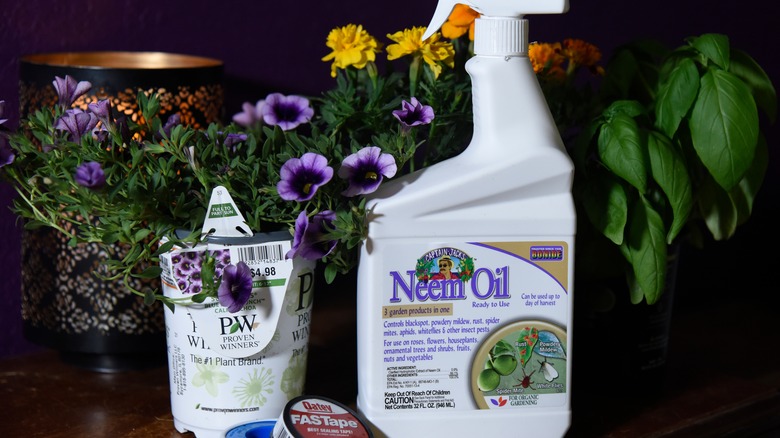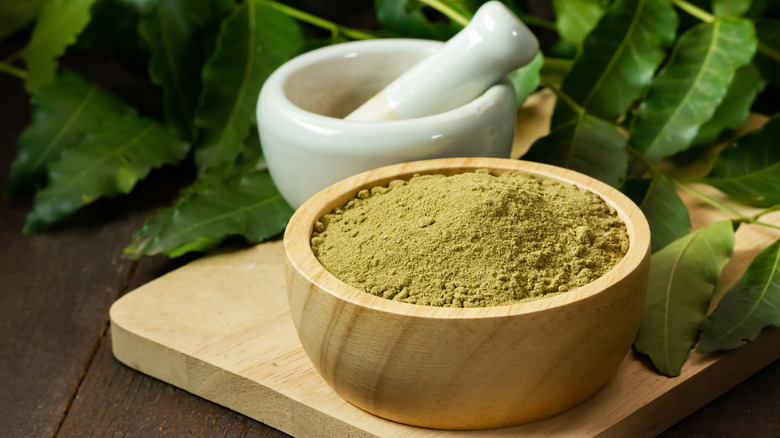Neem Oil Vs Neem Powder: Which Is Better For Your Lawn And Garden?
With myths being debunked right and left, a centuries-old plant remedy that's stood up to scientific testing can be a refreshing surprise. Neem trees, natives of Myanmar and countries nearby, have almost magical properties that repel and kill pests without harming the environment. Use neem products to banish grubs from your lawn, wipe out aphids on your Brussels sprouts, curtail powdery mildew, and even use them on your indoor houseplants. Most people are familiar with neem oil, but more recently, neem powders have been appearing on the market and in studies. Is this newcomer a better option for controlling your yard and garden pests? Neem powder can be just as effective, if not more, than its oily counterpart, but that entirely depends on its use. Neem oil and powder have qualities that make both of them better for separate pest control solutions.
Neem oil consistently proves its ability to take down insects, while the powder does the trick to control the growth of molds and fungi. Yet there's one more caveat: you can buy neem powder made from the leaves, which is not the same as the product made from crushed seeds. Both can be useful tools in the garden, but each powder will give you different results.
Neem oil's time-tested traits
If you dream of eliminating plant pests without collateral damage, neem oil should be part of your repertoire. This remarkable oil is made from neem tree seeds. They contain a natural insecticide called azadirachtin that even conventional pesticides add to their formulas. Neem oil is known to cause little or no harm to bees, birds, and mammals, but it can be mildly toxic to fish and water-dwelling animals.
There are plenty of common home and garden pests that you can eliminate with the oil, and it's great for both indoor and outdoor use. Insects that ingest plants treated with neem oil will die, but not immediately. Try the oil if you have an infestation of aphids, mealy bugs, caterpillars, or whiteflies, and be patient while the toxin does its work. Neem oil can also treat fungal ailments like powdery mildew. It won't get rid of the mildew entirely, but you can keep the fungus from spreading by applying the oil to affected plants.
A tale of two powders
Which neem powder to use depends entirely on what you want to use it for. Do you need to kill fungi, or are you looking to amend your soil? Go with neem leaf powder for the first problem, and confront the other with powdered kernels.
There's not a lot of scientific data floating around about neem powders. Studies so far have shown that powdered leaves are better at killing fungi than the oil. In fact, librarians in India have used whole neem leaves for eons as a way to fend off mold growth among the pages. Powdered leaves also showed to stave off some beetle infestations. Crushed kernels, also marketed as neem powder, go by the less confusing name of neem cake. This product is growing in popularity as a fertilizer, but studies indicate that adding it to soil can kill certain nematodes that target healthy plants. It's up to you to choose between neem oil and neem powders for your garden. However, nothing is keeping you from experimenting with all three for different fungal infections, pest infestations, and soil quality issues.


